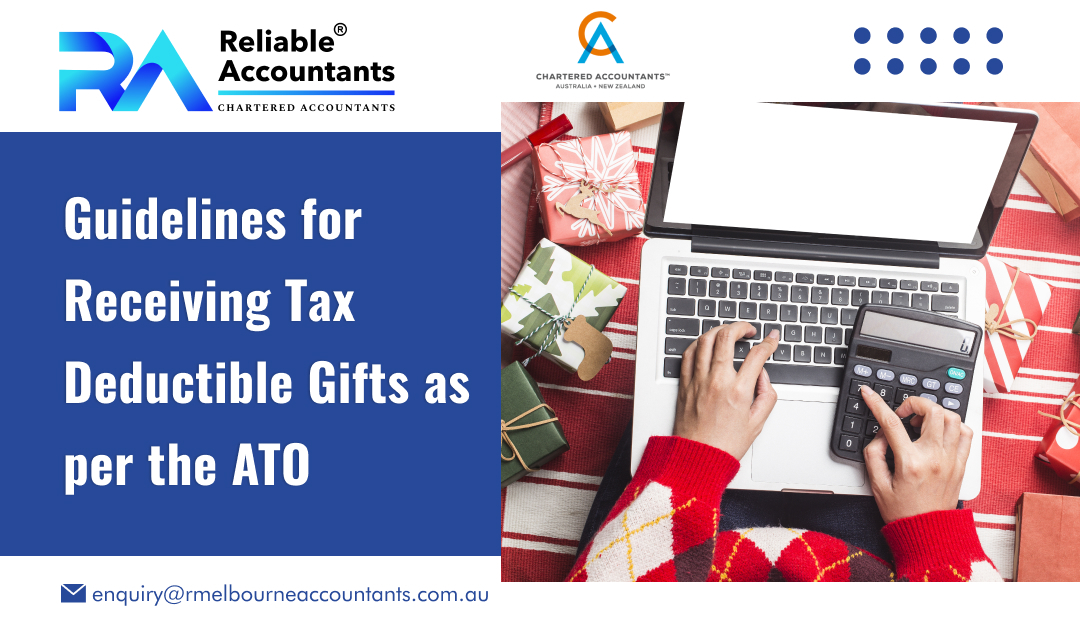Today we’ll discuss the topic of individuals and organisations receiving tax-deductible gifts and contributions according to the guidelines provided by the Australian Taxation Office. Understanding the difference between gifts and contributions and how the ATO treats them differently is vital for both donors and recipients to ensure compliance and increase the benefits of tax-deductible giving. Let’s dive right in to know the key points to consider when distinguishing between tax-deductible gifts and contributions.
Difference between Gifts and Contributions
As per the guidelines provided by the Australian Taxation Office, the ATO makes a distinction between gifts and contributions. You can’t overlook that the role of both is giving to a charitable organisation, the nature and treatment of these transactions differ.
What is a Gift?
A gift is a voluntary transfer of money or property given without expecting any benefit in return. For instance, a contributor puts $5 in a collection box. They don’t receive a material benefit in return for their gift. For tax-deductible gifts to be eligible for a tax deduction, the ATO provides guidelines. The gift must meet certain criteria:
- It must be a voluntary and unconditional transfer of money or property given to the donor with no material benefit or advantage in return.
- The gift should be made to a deductible gift recipient DGR or an organisation with DGR status. For instance, if a donor puts $5 in a collection box without getting any material benefit, this can be considered a tax-deductible gift according to the ATO guidelines.
Contributions
On the other hand, contributions are treated differently by the ATO while they may support charitable organisations and often receive a benefit in return. According to the ATO guidelines, if a contribution is made in exchange for goods, services or benefits of monetary value, the tax-deductible is reduced by the fair market value of the benefit received. Let’s consider an example: if a donor buys a ticket to a fundraising dinner, they will most probably receive a material benefit in return for their contribution. In this case, the portion of tax deduction of their contribution is minimised by the fair market value of the dinner ticket.
According to the guidelines of the ATO, the difference between gifts and contributions impacts their treatment and reporting.
- Gifts are generally eligible for full tax deductions. While contributions have the deductible portion minimised by the value of the benefit received in return.
- Organisations need to track and report the deductible portion of contributions separately from other revenue streams and it must be done accurately.
To ensure transparency and compliance with the guidelines of ATO, to summarise understanding the distinction between tax-deductible gifts and contributions is essential for both donors and recipients. Gifts are voluntary transfers without expecting any benefit in return. On the other hand, contributions involve a payment made in exchange for a receiving specific benefit. The guidelines of ATO provide specific criteria and treatment for gifts and contributions. And it’s important to adhere to these guidelines to ensure compliance.
When can you claim a tax deduction?
For the majority of gifts and contributions, donors can claim a tax deduction in the year they made the gift or contribution. You should be aware that a tax loss can’t be added to or created by the tax deduction for gift donations. Your assessable income in the tax year in which the gift is made can be reduced to zero by the deduction, but any excess can’t be claimed in that year. However, you might decide to spread the tax deduction over a period of up to five income years before filing your tax return. This is probably for you because:
- you may not be able to claim the entire amount in the existing year
- you earn a greater income in some years as compared to others.
Moreover, to claim possible tax deductions, you can seek help from tax accountants in Melbourne.
Conclusion
The blog covers guidelines for receiving tax-deductible gifts as per the ATO. To know what and when you claim these tax deductions, you can get in touch with Reliable Melbourne Accountants.
Subscribe our YouTube channel for more updates:

